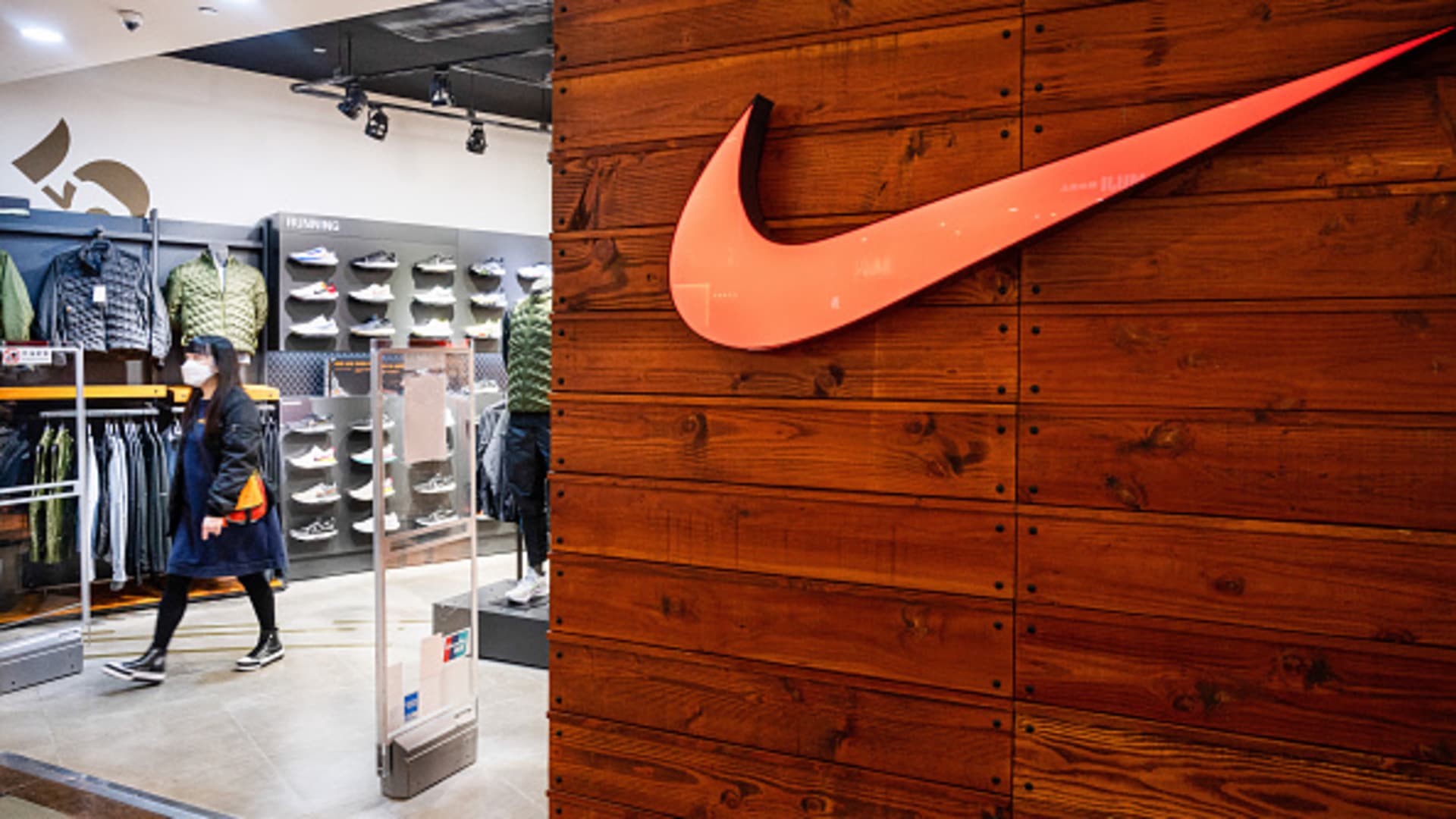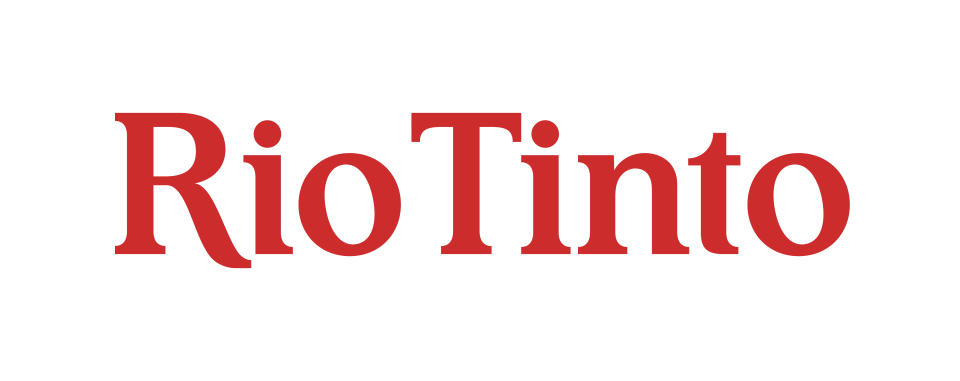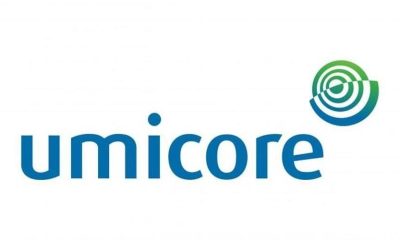Investment
Here’s how much money you’d have if you invested $1,000 in Nike 10 years ago

Nike continues to draw in sneaker fans and activewear lovers.
The retailer reported revenue of $12.4 billion for its third fiscal quarter of 2023, beating analysts’ predictions of $11.47 billion, according to Refinitiv consensus estimates. The company also reported earnings per share (EPS) of $0.79, compared with the $0.55 analysts expected.
Additionally, the company reported that revenue rose 14% compared with the year-earlier period.
For several years, Nike has worked to expand its ability to sell directly to consumers rather than through other retailers. This has included increasing its digital sales, building experiential stores and bolstering its loyalty program.
Nike Direct, the company’s direct-to-consumer brand, sales rose by 17% during the holiday quarter to $5.3 billion, according to its quarterly report. Nike Brand Digital sales were up 20%.
But you’ll still be able to find Nike products outside of the company’s own stores and website.
In January, Nike CEO John Donahoe told CNBC that wholesalers remain “very, very important” to the company.
“Consumers in this day and age want to get what they want, when they want it, how they want it, and in our industry, they’ve been very clear they want a premium and consistent shopping experience regardless of channel,” he said.
To that point, Foot Locker touted a “revitalized” relationship with Nike during its “2023 Investor Day” presentation on March 20, saying the partnership is complementary to Nike’s direct-to-consumer strategy.
What this means for investors
Nike reported its fiscal third-quarter results after the bell on March 21. The following day, shares declined slightly by almost 5% and ended the trading session at $119.50 per share.
Here’s how much money you’d have as of March 22 if you had invested $1,000 into the company one, five and 10 years ago.
If you had invested $1,000 into Nike a year ago, your investment would be worth about $908 as of March 22, according to CNBC’s calculations.
If you had invested $1,000 into Nike five years ago, your investment would have nearly doubled to $1,937 as of March 22, according to CNBC’s calculations.
And if you had put $1,000 into Nike a decade ago, it would have more than quadrupled to $4,293 as of March 22, according to CNBC’s calculations.
Investors should do their research
Remember, there isn’t an infallible way to predict how the stock market may behave in the future. Just because a stock is performing well currently doesn’t necessarily mean it will continue to do so going forward.
Instead of picking stocks to invest in one-by-one, a more hands-off investment strategy tends to make sense for most investors. A popular way to start is by investing in low-cost index funds such as the S&P 500, which is a market index that tracks the stock performance of the 500 largest, publicly-traded companies in the U.S.
Experts typically recommend this strategy because it can diversify your portfolio by adding exposure to a wide array of companies.
As of March 22, the S&P 500 declined slightly by close to 13% over 12 months, according to CNBC’s calculations. However, the index has risen by about 49% since 2018 and grown by about 153% since 2013.
DON’T MISS: Want to be smarter and more successful with your money, work & life? Sign up for our new newsletter
Get CNBC’s free Warren Buffett Guide to Investing, which distills the billionaire’s No. 1 best piece of advice for regular investors, do’s and don’ts, and three key investing principles into a clear and simple guidebook.

Investment
Investment regulator imposed $14M in enforcement penalties in latest fiscal year

TORONTO — Canada’s investment product regulator says it imposed more than $14 million in fines and other financial enforcements in its last fiscal year.
The Canadian Investment Regulatory Organization (CIRO) says the total also includes imposed costs and the forced return of ill-gotten profits.
The regulator says it also ordered suspensions and permanent prohibitions in a significant proportion of proceedings against individuals.
Enforcement efforts included a $2 million fine against Fortrade Canada for recommending a high-risk product to unsophisticated retail clients, and a $1.7 million fine and permanent ban on securities-related business against Paul Walker for a range of misconduct including soliciting more than $1.5 million in investments for an outside business activity.
CIRO was created at the start of 2023 through a combination of the Investment Industry Regulatory Organization of Canada and the Mutual Fund Dealers Association of Canada.
The new self-regulatory organization says it is focused on harmonizing its regulatory approach to create more consistency and timeliness with enforcement action.
This report by The Canadian Press was first published July 16, 2024.
The Canadian Press

Investment
Conditions on Simandou investment now satisfied

LONDON, July 15, 2024–(BUSINESS WIRE)–All conditions have now been satisfied for Rio Tinto’s investment to develop the Simandou high-grade iron ore deposit in Guinea, including the completion of necessary Guinean and Chinese regulatory approvals. The transaction is expected to complete during the week of 15 July 2024.
Along with the recent approval by the Board of Simfer1, this allows Simfer to invest in and fund its share of co-developed rail and port infrastructure being progressed in partnership with Winning Consortium Simandou2 (WCS), Baowu and the Republic of Guinea.
More than 600 kilometres of new multi-use trans-Guinean railway together with port facilities will allow the export of up to 120 million tonnes per year of mined iron ore by Simfer and WCS from their respective Simandou mining concessions in the southeast of the country3. Together, this will be the largest greenfield integrated mine and infrastructure investment in Africa.
Rio Tinto Executive Committee lead for Guinea and Copper Chief Executive Bold Baatar said: “We thank the Government of Guinea, Chinalco, Baowu and WCS for their partnership in reaching this milestone towards developing the world class Simandou project.
“Simandou will deliver a significant new source of high-grade iron ore that will strengthen Rio Tinto’s portfolio for the decarbonisation of the steel industry, along with trans-Guinean rail and port infrastructure that can make a significant contribution to the country’s economic development.”
Under the terms of the transaction, Simfer will acquire a participation in the WCS project companies constructing rail and port infrastructure, commit to perform a portion of the construction works itself and commit to funding its share of the overall co-developed infrastructure cost, in an aggregate amount of approximately $6.5 billion (Rio Tinto share approximately $3.5 billion)4.
Chalco Iron Ore Holdings Ltd (CIOH) has now paid its share of capital expenditures incurred or required by Simfer to progress critical works up to completion. A first payment of approximately $410 million, for expenditures until the end of 2023, was made on 28 June 2024, and a second payment of approximately $575 million, for 2024 expenditures, was made on 11 July 2024. These amounts settle all expenditures incurred up to date.
The co-developed infrastructure capacity and associated cost will be shared equally between Simfer, which will develop, own and operate a 60 million tonne per year5 mine in blocks 3 and 4 of the Simandou Project, and WCS, which is developing blocks 1 and 2.
Under the co-development arrangement, Simfer and WCS will deliver separate infrastructure scopes to leverage expertise. Simfer will construct the approximately 70 kilometre Simfer spur rail line and a 60 million tonne per year transhipment vessel (TSV) port, while WCS will construct the dual track approximately 536 kilometre main rail line, the approximately 16 kilometre WCS spur rail line and a 60 million tonne per year barge port.
Once complete, all co-developed infrastructure and rolling stock will be transferred to and operated by the Compagnie du Transguinéen (CTG) joint venture, in which Simfer and WCS each hold a 42.5% equity stake and the Guinean State a 15% equity stake6.
First production from the Simfer mine is expected in 2025, ramping up over 30 months to an annualised capacity of 60 million tonnes per year5 (27 million tonnes Rio Tinto share). The mine will initially deliver a single fines product before transitioning to a dual fines product of blast furnace and direct reduction ready ore.
Simfer’s capital funding requirement for the Simandou project as a whole is estimated to be approximately $11.6 billion, of which Rio Tinto’s share is approximately $6.2 billion, broken down as follows.
| US dollars in billions (nominal terms) | Simfer
capex |
Rio Tinto share |
|
| Mine and TSVs, owned and operated by Simfer | |||
| Development of an initial 60Mt/a mine at Simandou South (blocks 3 & 4), to be constructed by Simfer | $5.1 | $2.7 | |
| Co-developed infrastructure, owned and operated by CTG once complete | |||
| Simfer scope (funded 100% by Simfer during construction)
Rail: a 70 km rail-spur from Simfer mine to the mainline, including rolling stock |
$3.5 | $1.9 | |
| WCS scope (funded 34% by Simfer during construction)
Port and rail infrastructure including an approximately 552 km trans-Guinean heavy haul rail system, comprised of a 536 km mainline and a 16 km WCS rail spur |
$3.0 | $1.6 | |
| Total capital expenditure (nominal terms) | $11.6 | $6.27 | |
Rio Tinto’s share of expected capital investment remaining to be spent from 1 January 2024 is to be $5.7 billion. Rio Tinto’s expected funding requirements for 2024 and 2025 are included in its share of capital investment guidance for this period, with project funding expected to extend beyond this timeframe.
Further details on the Simandou project can be found in the 2023 Investor Seminar presentation at https://www.riotinto.com/en/invest/investor-seminars.
As Chinalco, Baowu, China Rail Construction Corporation and China Harbour Engineering Company are Chinese state-owned entities, and given Chinalco indirectly holds 11.2% of shares in the Rio Tinto Group, they, and WCS, may be considered to be associates of a related party of Rio Tinto for the purpose of the UK Listing Rules. Rio Tinto’s funding commitment pursuant to the infrastructure co-development arrangement (Rio Tinto share $3.5bn) is a smaller related party transaction for the purposes of Listing Rule 11.1.10R and this announcement is, therefore, made in accordance with Listing Rule 11.1.10R(2)(c).
| ___________________________ |
| 1 Approval has been granted by the Board of Simfer Jersey Limited, a joint venture between the Rio Tinto Group (53%) and Chalco Iron Ore Holdings Ltd (CIOH) (47%), a Chinalco-led joint venture of leading Chinese SOEs (Chinalco (75%), Baowu (20%), China Rail Construction Corporation (2.5%) and China Harbour Engineering Company (2.5%)). Simfer Infraco Guinée S.A.U. will deliver Simfer Jersey’s scope of the co-developed rail and port infrastructure, and is, on the date of this notice, a wholly-owned indirect subsidiary of Simfer Jersey Limited, but will be co-owned by the Guinean State (15%) after closing of the co-development arrangements. Simfer S.A. is the holder of the mining concession covering Simandou Blocks 3 & 4, and is owned by the Guinean State (15%) and Simfer Jersey Limited (85%). |
| 2 WCS is the holder of Simandou North Blocks 1 & 2 (with the Government of Guinea holding a 15% interest in the mining vehicle and WCS holding 85%) and associated infrastructure. WCS was originally held by WCS Holdings, a consortium of Singaporean company, Winning International Group (50%) and Weiqiao Aluminium (part of the China Hongqiao Group) (50%). On 19 June 2024, Baowu Resources completed the acquisition of a 49% share of WCS mine and infrastructure projects with WCS Holdings holding the remaining 51%. In the case of the mine, Baowu also has an option to increase to 51% during operations. After Closing, Simfer will hold 34% of the shares in the WCS infrastructure entities during construction with WCS holding the remaining 66%. |
| 3 WCS holds the mining concession for Blocks 1 and 2, while Simfer S.A. holds the mining concession for blocks 3 and 4. Simfer and WCS will independently develop their mines. |
| 4 A true-up mechanism will apply between Simfer and WCS to equalise most of their costs of constructing the co-developed rail and port infrastructure. The figures shown here are pre-equalisation. |
| 5 The estimated annualised capacity of approximately 60 million dry tonnes per annum iron ore for the Simandou life of mine schedule was previously reported in a release to the Australian Securities Exchange dated 6 December 2023 titled “Simandou iron ore project update“. Rio Tinto confirms that all material assumptions underpinning that production target continue to apply and have not materially changed. |
| 6 Ownership of the rail and port infrastructure will transfer from CTG to the Guinean State after a 35 year Operations Period, with Simfer retaining access rights on a non-discriminatory basis and at least equivalent to all Third Party Users. |
| 7 By the end of 2023, Rio Tinto spent $0.5 billion (Rio Tinto share) to progress critical path works. Rio Tinto’s share of expected capital investment remaining to be spent from 1 January 2024 was $5.7 billion. |
This announcement is authorised for release to the market by Andy Hodges, Rio Tinto’s Group Company Secretary.
View source version on businesswire.com: https://www.businesswire.com/news/home/20240621382292/en/
Contacts
Please direct all enquiries to media.enquiries@riotinto.com
Media Relations,
United Kingdom
Matthew Klar
M +44 7796 630 637
David Outhwaite
M +44 7787 597 493
Media Relations,
Australia
Matt Chambers
M +61 433 525 739
Jesse Riseborough
M +61 436 653 412
Alyesha Anderson
M +61 434 868 118
Michelle Lee
M +61 458 609 322
Media Relations,
Americas
Simon Letendre
M +1 514 796 4973
Malika Cherry
M +1 418 592 7293
Vanessa Damha
M +1 514 715 2152
Investor Relations,
United Kingdom
David Ovington
M +44 7920 010 978
Laura Brooks
M +44 7826 942 797
Investor Relations,
Australia
Tom Gallop
M +61 439 353 948
Amar Jambaa
M +61 472 865 948
Rio Tinto plc
6 St James’s Square
London SW1Y 4AD
United Kingdom
T +44 20 7781 2000
Registered in England
No. 719885
Rio Tinto Limited
Level 43, 120 Collins Street
Melbourne 3000
Australia
T +61 3 9283 3333
Registered in Australia
ABN 96 004 458 404
Category: Simandou

Investment
BlackRock Pulls Ad Featuring Trump Rally Shooter Thomas Matthew Crooks

A screengrab of Thomas Crooks from the BlackRock ad that aired in 2022.
Thomas Matthew Crooks, the 20-year-old who shot at former president Donald Trump at a rally in Pennsylvania, had briefly appeared in a 2022 advertisement for BlackRock Inc, the world’s largest money manager.
The ad, filmed at the Bethel Park High School in Pennsylvania, featured Crooks and several other unpaid students in the background, said the investment giant in a statement. Crooks graduated from the school in 2022.
🚨Trumps Shooter “Thomas Mathew Crooks” was featured in a BLACKROCK COMMERCIAL in 2023!!! pic.twitter.com/fdbkfHOS04
— The Real World Fan Page (@BeOutTheMatrix) July 15, 2024
BlackRock said it has pulled the ad but the video will be available to authorities. The ad, however, is being widely shared by social media users.
“The assassination attempt on former President Trump is abhorrent. We’re thankful former President Trump wasn’t seriously injured, and thinking about all the innocent bystanders and victims of this awful act, especially the person who was killed,” the company added in its statement.
window._rrCode = window._rrCode || [];_rrCode.push(function(){ (function(v,d,o,ai){ai=d.createElement(“script”);ai.defer=true;ai.async=true;ai.src=v.location.protocol+o;d.head.appendChild(ai);})(window, document, “//a.vdo.ai/core/v-ndtv/vdo.ai.js”); });
BlackRock, whose earnings figures are expected today, has faced scrutiny after shooting incidents since some of its index funds own shares in gunmakers.
Trump Assassination Attempt
Trump survived an assassination attempt on Saturday after a gunman opened fire at him at a rally in Pennsylvania ahead of the Presidential elections. The attack left him with a bloodied face as the former president said the bullet pierced his “upper part of right ear”.

A bystander died in the attack while shielding his family and Crooks – a registered Republican – was shot dead by a Secret Service sniper.
Trump, whose Republican candidature will be finalised today, shared a message of unity after the attack and said Americans must not allow “evil to win”. “It was God alone who prevented the unthinkable from happening,” he said on social media.
Biden, too, appealed to the nation to “lower the political temperature” in a rare Oval Office address. “Politics must never be a literal battlefield, God forbid a killing field,” he said.
The US markets are expecting Trump trades to gain momentum after the attack. It has already been pinning hopes for the return of Republicans, especially after Biden’s poor performance in last month’s debate. Those trades are likely to take deeper hold as the attack sparks a wave of sympathy and support for Trump.

-

 News3 hours ago
News3 hours agoAfter grind of MLS regular season, Toronto FC looks forward to Leagues Cup challenge
-

 News4 hours ago
News4 hours agoIn President Milei’s sit-down with Macron, Argentina says the leaders get past soccer chant fallout
-

 News9 hours ago
News9 hours agoOntario expanding access to RSV vaccines for young children, pregnant women
-

 News17 hours ago
News17 hours agoCanadaNewsMedia news July 26, 2024: B.C. crews wary of winds boosting wildfires
-

 News18 hours ago
News18 hours agoFrench train lines hit by ‘malicious acts’ disrupting traffic ahead of Olympics, rail company says
-

 News17 hours ago
News17 hours agoPeople should stay inside, filter indoor air amid wildfire smoke, respirologist says
-

 News11 hours ago
News11 hours agoFederal grand jury charges short seller Andrew Left in $16M stock manipulation scheme
-

 News2 hours ago
News2 hours agoUmicore suspends construction of $2.76B battery materials plant in Ontario





















